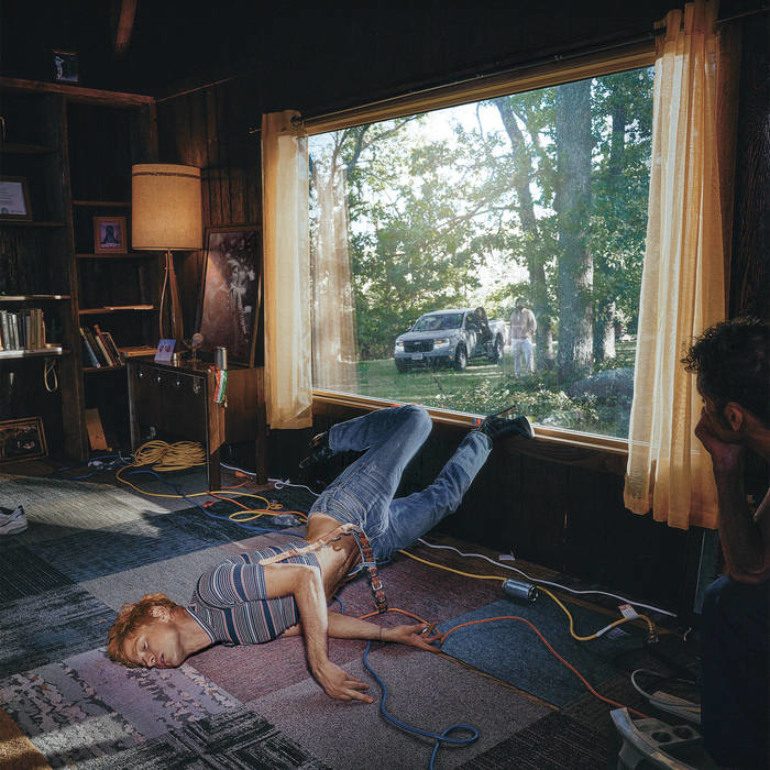

Mike Hadreas, known to the public as the artist persona Perfume Genius, who gained fame for his bright and experimental pop music, is exploring acoustic alternative pop with his new record, Glory. Hadreas can brilliantly synthesize his art pop past with live instrumentation and textures to blaze a new path forward in the alternative scene.
The lead single and opening track of the project, “It’s A Mirror,” begins with four contrasting guitar lines. Listeners will notice that the project is not centered around traditional triads and chords; instead, multiple melodic lines are layered on top of each other to create a harmonic structure. These hypnotic patterns are repeated throughout entire songs, with minimal variance. Successfully pulling off this complex blend of melodies and sounds is a nod to the phenomenal production work on this record, spearheaded by Blake Mills. Drums even get in on this interplay, as seen in the intro of “Left For Tomorrow,” where they exchange eighth notes with the bass for most of the track. However, these repeating riffs can become monotonous, notably on “Full On,” a nearly five-minute song that centers around a raking acoustic guitar strum on all four beats of every measure.
Another technique this record demonstrates masterfully is dynamic range. Because the songs are mostly centered around loops, breaking this pattern creates a massive contrast. The vocals sound like they are alive and breathing. This is in part due to the live instrumentation; the recorded performances are played with so much emotion. This is also related to Hadreas taking his time with the delivery of each lyric. He leaves plenty of space for the listener and for the track to breathe further. Sometimes, these dynamic shifts are drastic and sudden, as seen on the second single, “No Front Teeth.” The song opens as an acoustic, front-heavy ballad with breathy vocals, especially from Aldous Harding, the featured artist, and abruptly transitions into a whole, angry rock song by the end. This outro is another example of heartfelt playing; the chords are dragged out, almost sloppily, with the guitars themselves sounding angry.
Upon first listen, it can be challenging to catch the lyrical content. However, it seems that Mills and Hadreas intend for the vocal act to serve as another musical element. It sits further back than usual throughout the project, acting like another instrument woven into the tapestry of sound. On “Capezio,” listeners are reminded of Hadreas’ experimental roots, with a heavily affected tremolo vocal piercing through from the top of the track. The lyrics are barely audible, the voice acting more as a melodic phrase than a storytelling device.
What stands out about the vocal is the delivery – it sounds as though Hadreas is near tears, voice almost breaking on every line. This delicate and vulnerable presentation of the personal stories Hadreas shares on the record is what ties the entire piece together and creates continuity between songs. The dreamy soundscape of the album, matched with a deep examination of his mind, allows Perfume Genius to break new ground within the alternative scene and push past the boundaries of his previously established sound.
